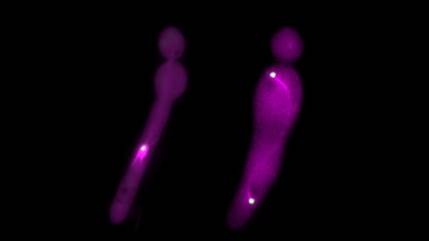Important Facts For Prelims
New Gene to Prevent Fungal Infection
- 27 Aug 2022
- 3 min read
Why in News?
According to a recent study, researchers have identified gene called CSA6 which could hold the key to prevent fungal infection Candidiasis that often affects intensive-care unit (ICU) patients, cancer patients and patients receiving immunosuppressive therapy.
What is Candida Albicans?
- Candida Albicans is a fungal species infamous for causing high rates of morbidity and mortality under certain immuno-compromised conditions such as Acquired Immune Deficiency Syndrome (AIDS) or during cancer treatment.
- It resides in the mucosal linings of the gastrointestinal and urogenital tract of healthy individuals.
- Further, it turns into a pathogen under immuno-compromised conditions breaching the host defense causing superficial as well as life-threatening systemic infection.
What are the Key Highlights of the Study?
- About:
- It’s a collaborative study between Jawaharlal Nehru Centre for Advanced Scientific Research (JNCASR), Bangalore, India and Institut Pasteur, Paris, France.
- They carried out a large-scale screen to identify regulators of chromosome stability in Candida albicans, a clinically relevant fungal model system.
- It’s a collaborative study between Jawaharlal Nehru Centre for Advanced Scientific Research (JNCASR), Bangalore, India and Institut Pasteur, Paris, France.
- Findings:
- Researchers screened the effect of overexpression of more than a thousand genes of C. albicans on genome stability.
- They were successful in identifying a set of six chromosome stability (CSA) genes that are important for maintaining genome integrity.
- While five of the CSA genes identified in the study are known to be important for cell division in other species, the sixth CSA gene, named CSA6 encoded for a protein that is essential for viability in C. albicans.
- They found that Csa6 was a critical regulator of cell cycle progression wherein both overexpression and deletion of CSA6 lead to reduced growth of C. albicans cells.
- Outcomes:
- It identifies and elucidates the functions of a novel regulator of chromosome stability that is exclusively present in a group of medically relevant human fungal pathogens.
- Besides, it also provides a systematic scheme for identifying genes whose products may serve as potential therapeutic interventions for fungal infections by posing lesser adverse effects on humans.
- Hence, small molecule modulators that alter expression levels of the gene called CSA6 offer potential avenues for treatment with no side effects in humans.







